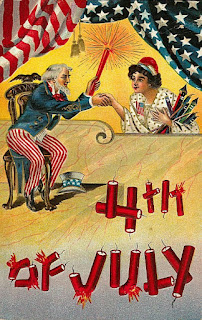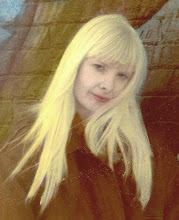A Tribute:

Bea Arthur
Beatrice "Bea" Arthur
Born: May 13, 1922
Died: April 25, 2009
In 1971, Arthur was invited by Norman Lear to guest-star on his sit-com All in the Family, as Maude Findlay, the cousin of Edith Bunker. An outspoken liberal feminist, she was the antithesis to the bigoted, conservative Archie Bunker, who decried Maude as a "New Deal fanatic". The then-50 Arthur's tart turn appealed to viewers and to executives at CBS, who, she would later recall, asked "'Who is that girl? Let's give her her own series.'"
That show, previewed in a second episode of All in the Family, would be simply titled Maude. The show, debuting in 1972, would find her living in the affluent community of Tuckaho,
Westchester County, New York, with her husband Walter (Bill Macy) and divorced daughter Carol (Adrienne Barbeau). Her performance in the role garnered Arthur several Emmy and Golden Globe nominations, including her Emmy win in 1977 for Outstanding Lead Actress in a Comedy Series.
It would also earn a place for her in the history of the women's liberation movement. The groundbreaking series didn't shirk from addressing serious sociopolitical topics of the era that were fairly taboo for a sit-com, from the Vietnam War, the Nixon Administration and Maude's bid for a Congressional seat to divorce, menopause, drug use, alcoholism, nervous breakdown and spousal abuse. A prime example, "Maude's Dilemma", was a two-part episode in which Maude's character grapples with a late-life pregnancy, ultimately deciding to have an abortion. The episode aired two months before the U.S. Supreme Court legalized the procedure in the Roe v. Wade decision. Though abortion was legal in New York State, it was illegal in many regions of the country and so controversial that dozens of affiliates refused to broadcast the episode. A reported 65 million viewers watched the two episodes either in their first run that November or the following summer as a re-run. By 1978, however, Arthur decided to move on from the series.
That year, she costarred in The Star Wars Holiday Special, in which she had a song and dance routine in the Mos Eisley Cantina. She hosted The Beatrice Arthur Special on CBS on January 19, 1980, which paired the star in a musical comedy revue with Rock Hudson, Melba Moore and Wayland Flowers and Madame.
After appearing in the short-lived 1983 sitcom Amanda's (an adaptation of the British series Fawlty Towers), Arthur was cast in the sitcom The Golden Girls in 1985, in which she played Dorothy Zbornak, a divorced substitute teacher living in a Miami house owned by Blanche Devereaux (Rue McClanahan). Her other roommates included widow Rose Nylund (Betty White) and Dorothy's Sicilian mother, Sophia Petrillo (Estelle Getty). Getty was actually a year younger than Arthur in real life, and was heavily made up to look significantly older. The series remained a top ten ratings fixture for six seasons. Her performance led to several Emmy nominations over the course of the series and an Emmy win in 1988. Arthur decided to leave the show after seven years and in 1992, the show was moved from NBC to CBS and retooled as The Golden Palace in which the other three actresses reprised their roles. Arthur made a guest appearance in a two-part episode.
Arthur was married twice, first to Robert Alan Aurthur, a screenwriter, television, and film producer and director, whose surname she took and kept (though with a modified spelling), and second to director Gene Saks from 1950 to 1978 with whom she adopted two sons, Matthew (born in 1961), an actor, and Daniel (born in 1964), a set designer.
She primarily lived in the Greater Los Angeles Area and had sublet her apartment on Central Park West in New York City and her country home in Bedford, New York.
Arthur was a committed animal rights activist and frequently supported People for the Ethical Treatment of Animals campaigns. Arthur joined PETA in 1987 after a Golden Girls anti-fur episode. Arthur wrote letters, made personal appearances and placed ads against the use of furs, foie gras, and farm animal cruelty by KFC suppliers. She appeared on Judge Judy as a witness for an animal rights activist, and, along with Pamela Anderson insisted on a donation to PETA in exchange for appearing on Comedy Central.
Arthur's longtime championing of civil rights for women, the elderly and the LGBT community—in her two television roles and through her charity work and personal outspokenness—has led her to be cited as an LGBT icon.
Arthur died at her home in the Greater Los Angeles Area in the early morning hours of Saturday, April 25, 2009, aged 86. She had been ill from cancer.
On April 28, 2009, the Broadway community paid tribute to Arthur by dimming the marquees of New York City's Broadway theater district in her memory for one minute at 8:00 P.M.
Both of Arthur's surviving Golden Girls co-stars commented on her death. Rue McClanahan said, "I suppose perhaps the thing she did the best and the most of was make people laugh". Betty White said, "I knew it would hurt. I just didn't know it would hurt this much".
Longtime friend and actress Adrienne Barbeau, who co-starred in Maude, said "I loved Bea dearly and her passing brings a great sadness. We've lost a unique, incredible talent. No one could deliver a line or hold a take like Bea, and no one was more generous or giving to her fellow performers. She was truly one of a kind and her friendship was a cherished blessing for me."


 Bea Arthur
Bea Arthur